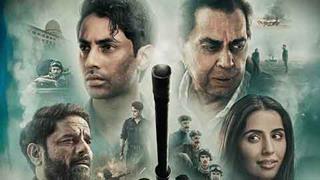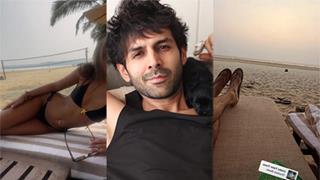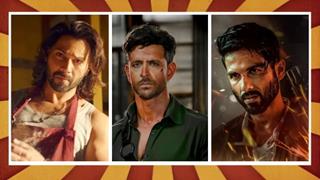In the western world people often choose their partner, but they assume that their Indian friends and colleagues will inevitably be forced into an arranged marriage.
Dispelling this myth is Indian-origin Australian filmmaker Sheila Jayadev's documentary, "Arranging Love".
The film has been accepted for Seattle's fourth Independent South Asian Film Festival beginning Oct 3.
"At university, I was always told that you will have an arranged marriage and I would say, 'No, that is not necessarily true. My parents don't impose their cultural values on
me'," says Sheila.
Sheila's parents - father a doctor and mother a dietician - migrated to Australia from Bangalore. She says, "My mother got married in the late 1960s in India and she 'saw'
five boys before agreeing to marry my father. She felt really empowered by the situation."
She says, "There have been too many negative portrayals of arranged marriage. It is assumed that you have very strict parents and very little freedom. You have to be pitied
as you will be forced into an inevitably unhappy union."
Her film features three second-generation Indians in Australia. Their stories uncover the truth of living in the middle ground between East and West in the 21st
century.
Australian-Indians Anil and Veena's parents had an arranged marriage in India, and the two wedded in a traditional Hindu ceremony. Anil says, "The whole thing was
arranged in a sense of the meeting initially but the only reason that it progressed was that we fell in love."
Sheila says, "Sometimes migrant parents, who left India 20 or 30 years ago, tend to be more conservative. The exile is the greatest patriot. It is important for girls and boys
to be friends and if you are too controlling, they will meet behind your back."
As Veena says, "I had my first boyfriend at university, he came home and it was all good. My father still thinks to this day that he was just my tennis partner."
Indian parents, and parents in many other cultures, wish their children to marry within the community for the sense of security and familiarity of culture it provides.
Ami, whose parents moved to Australia when she was two years old, met her future husband, Deepak, by arrangement while holidaying in India. She says, "I guess, I kind of
knew, I would marry someone of Indian origin ultimately, mainly because I have a lot in common with someone like that."
Through her documentary, Sheila hopes to "open up people's mind on arranged marriage, what it is, how it is practised and the fact that it also has positive
aspects".
Sunil was born in Australia and considers himself as much an Australian as his partner, April. A comment in the film by Sunil's mother says it all about how some Indian
migrants have adapted the culture of their adoptive countries. "The first time I met April something clicked and I said to Sunil later, 'whether you marry her or not, I'm keeping
her'."
However, some of the most interesting comments come from the white Hindu priest, Sri Ramanuj Acharya. He explores the origins of arranged marriage and how it is
reflected in today's online dating and single's clubs. From Kamasutra to temple carvings, he speaks about the recognition of sexuality in ancient India, now coloured with
Victorian sensibilities from an English education.
"I've tried to bring out the idea that just like friends set each other up in the western world, families do that in our culture - it's the same thing," says Sheila, who was
"matched" with her Austrian-born fiancé by colleagues at work.
Sheila practises entertainment law and plans to make more films based on the theme of the migrant experience. She hopes to progress to short films and dreams eventually
of writing and directing a feature length film.
Janelle Landers, producer of the documentary, says, "Films like 'Arranging Love' can be a really good insight into different cultures and their perspectives and are a great
vehicle for getting both sides to understand more about each other.
"We have been overwhelmed with the response from film festivals, especially in the USA and Canada and we hope to finalise a broadcast with Al Jazeera, which has
expressed interest in acquiring the film. We will also be looking at selling into other territories, including India," adds Janelle.
The 26-minute documentary has already screened at six film festivals in Brisbane, Florida, Los Angeles, Toronto and earlier this month at the DC Meets Delhi Film Festival
in Washington DC.
So next time you hear the word "arranged marriage", don't cringe!
Next time you hear arranged marriage, don`t cringe
Saturday, September 29, 2007 11:35 IST


















